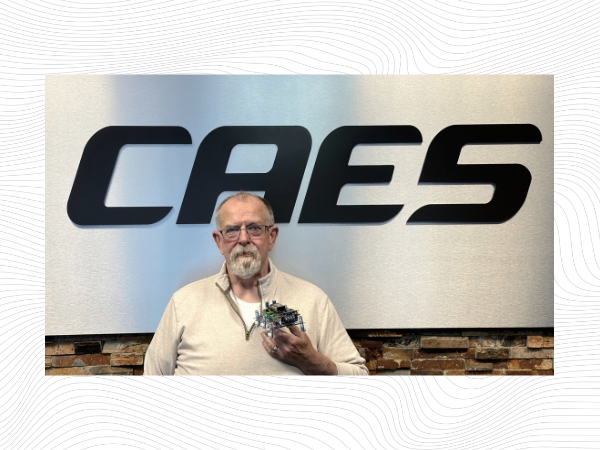Every day, we interact with artificial intelligence (AI). Whether it’s a customer service chatbot or a platform to help us be more productive at work, AI has become a prevalent part of our society. However, along with the convenience, idea generation and analysis it brings, AI also raises questions and concerns.
A CAES expert on artificial intelligence is set to keynote a prominent engineering conference this summer to explore the effects of chatbots on society and human relations, both the good and the bad.
Jim Crowder, PhD, Systems Fellow with CAES Advanced Program Development, will present a keynote address at the 2023 World Congress in Computer Science, Computer Engineering, and Applied Computing. The conference is among the top five largest annual gatherings of researchers in the space and is taking place July 24-27, 2023. This will be the third year Dr. Crowder has been invited to speak.
Over the last few years, there has been an ongoing conversation about the role of artificial intelligence in our society today and in the future. Given the recent debate around popular AI chatbots like ChatGPT, we enter a new world of interactions with AI-like entities. In his keynote, Dr. Crowder will address both the good and bad of online chatbots, exploring how artificial intelligence has become an integral part of our lives, the issues associated with the proliferation of online chatbots and the effects of chatbots on society and human relations.
At CAES, Dr. Crowder focuses on AI applications and research, including cognitive electronic warfare systems. He has 30 years of experience in artificial intelligence, machine learning, fuzzy systems and genetic algorithms, and has extensive experience in the design and implementation of cognitive neural frameworks, mathematical systems that analyze data to learn skills. In addition to the upcoming keynote, Dr. Crowder is also working on a new book exploring the future of chatbots.
To learn more about AI, chatbots and their overall effects, read Dr. Crowder’s recent blog post for Springer here.
